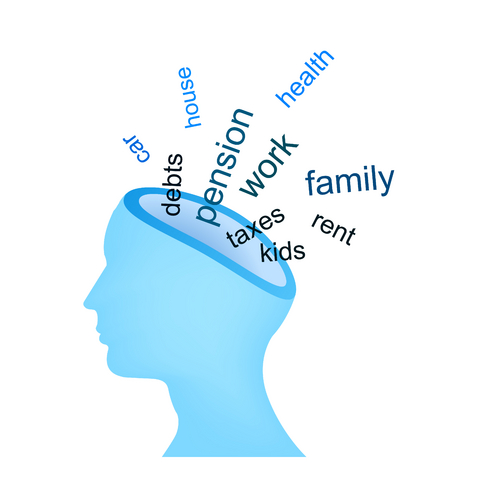
Compassion Doesn’t Have to Hurt, in Nursing or Otherwise
Albert Einstein wrote:
A human being is a part of the whole called by us “Universe,” a part limited in time and space. He experiences himself, his thoughts, his feelings, as something separate from the rest—a kind of optical delusion of his consciousness. The delusion is a kind of prison for us, restricting us to our personal desires and to affection for a few persons nearest to us. Our task must be to free ourselves from this prison by widening our circle of compassion to embrace all living creatures and the whole of nature in its beauty. Nobody’s able to achieve this completely, but striving for such achievement is in itself a part of the liberation and a foundation for inner security.
There’s a lot of talk in nursing, and in the literature about “compassion fatigue.” I just did a Google® search for the keywords “compassion fatigue in nurses” and came up with 46,700 links…46,000! You’d think that we’re all suffering from burnout, which can’t be possible…or, is it?!
I’ve been there, you may have too. I’d just cared for my umpteenth patient, walked out the door, and said, “why the hell am I still here?!”
There’s No Such Thing as Compassion Fatigue!
I’ve written a lot about my belief (very strong belief!) that there’s no such thing as compassion fatigue!
The notion that compassion can cause fatigue gives me cause to pause, how about you? Can compassion really lead to fatigue, can caring so much for another cause burnout? Or, is it a matter of not caring for ourselves, or not realizing that within each of us there is a wellspring of compassion, unlimited by the duration that we serve others, or by the amount of suffering that we witness. Have we lost the connection to that part of ourselves that can heal as Mother Theresa healed, to care as Gandhi cared, to give as selflessly as those we admire have done?
Why do we burnout? Why do we experience fatigue when we’re caring for others? Why do we feel that to be compassionate has to take its toll, rather than lift us up? Is there something that I’m missing when I feel burned out after caring for another, something that I’m doing, or some way that I’m being that is preventing me from feeling uplifted by what I’m doing?
There’s actually plenty of evidence that shows the contrary, that helping others can actually make us happier. And research into practitioners who use compassion meditation techniques has shown that we can actually modify the neural (brain) pathways that control our emotions – please see post from Meditation Increases Our Ability to Be Compassionate.
So, how do we get from here to there? I tend to learn things more easily when they’re numbered or put into lists. Acronyms work well for too. For those inclined to lists, here’s an easy-to-remember list of things that we can do to remember to keep our heart in our work, while keeping our mind in ease.
A Simple List of Things that We Can Do to Maintain a Compassionate Presence at the Bedside:
- Remember to give ourselves the same love (or care if that’s an easier word to work with) that we want to give to our patients. Don’t we deserve that much care? Where have we gone wrong where we’ve equated selfishness at the expense of others for a genuine love for ourselves, compassion for ourselves? Why do we believe that caring for ourselves is any less important than caring for our patients?
- Recognize others, those who we care for and those around us, as wanting the very same things that we want, to be happy and to be free from suffering. This can be essentialized when we say, see others as being “another me.” When we think about it, those we care for are like us in their desire to be free from suffering and wanting to be happy.
- We need to remember, repeatedly, that whatever we’re feeling at the moment will eventually dissipate, and that we’ll be feeling something different within a matter of minutes, days, or even weeks. That is, everything that we experience and feel is impermanent, so if we can remain present in the moment while we’re attending to another, without letting the thoughts and feelings of the moment distract us, we can mind the bedside more easily.
- We need to remember our connection with others. Like Einstein’s quote, “[we] experience… [ourselves], [our] thoughts, [our] feelings, as something separate from the rest—a kind of optical delusion of [our] consciousness. The delusion is a kind of prison for us, restricting us to our personal desires and to affection for a few persons nearest to us.
- Finally, and I stumble on this one constantly, is to forgive ourselves each time that we find ourselves standing knee-deep in mindlessness. Each time that we remember that we’ve forgotten to be present is an invitation to return to our mind and to our intention to care.
Loving Kindness Practice
There’s a practice, you could call a “meditative” practice, called loving kindness that helps us to work with these points. Please feel free to download this Loving Kindness Practice and use it as a support. You can even carry it in your pocket and read from it during your breaks at work, or at home. And, let me know if you need something else to work with; I know that I’m constantly using different tools at different times to support my inescapably distracted mind!
[i] Letter of 1950, as quoted in the New York Times (29 March 1972) and the New York Post (28 November 1972). However, The New Quotable Einstein by Alice Calaprice (Princeton University Press, 2005: ISBN 0691120749), p. 206, has a different and presumably more accurate version of this letter, which she dates to February 12, 1950, and describes as “a letter to a distraught father who had lost his young son and had asked Einstein for some comforting words.” A human being is a part of the whole, called by us “Universe,” a part limited in time and space. He experiences himself, his thoughts and feelings as something separate from the rest—a kind of optical delusion of his consciousness. The striving to free oneself from this delusion is the one issue of true religion. Not to nourish it but to try to overcome it is the way to reach the attainable measure of piece of mind.





[…] The meditative mind, the state of meditation is a state of non-distraction. Caring for others, whether a patient, a loved one, or even attending to someone who we meet, is an invitation to meditate. Each moment of undistracted presence while attending to the needs of another is true compassion. […]
[…] The meditative mind, the state of meditation is a state of non-distraction. Caring for others, whether a patient, a loved one, or even attending to someone who we meet, is an invitation to meditate. Each moment of undistracted presence while attending to the needs of another is true compassion. […]
Hi Jerome,
thanks for the great reminder to take care of ourselves while caring for others, especially to be forgiving to ourselves. My husband is an RN and I am a mom, two jobs where you need constant compassion, and are in danger of hitting burnout if you are not centered. Very important topic.
Thanks again!
Hey Yael –
Thanks so much for our feedback; it’s so very satisfying to know that something that I write can help others to keep perspective and to remember the awesome ability that we all have to work with our heart and mind. Congratulations to you for being a mom and working on and with your creativity! And, congratulations to your husband for having made the decision to go into nursing. Where does he work? What kind of nursing does he like to do the most?
Thanks again for your input.
Warm regards,
Jerome
In my experience, the toughest one for my colleagues and myself is to “recognize others … as wanting the very same things that we want, to be happy and to be free from suffering.” The patients in our care, the other members of the team, don’t always make the decisions that we would make. We find it very hard sometimes to step back to see how when they make these decisions they do believe they are moving towards that common goal. I remember one night a colleague was taking care of a woman from west Africa who had left her children in a refugee camp there when she came to the US. My colleague who had children the same age decided “There must be something wrong with her, that she could just leave her children behind.” Then for the rest of the shift she carried around the burden of resentment of taking care of “another immigrant patient taking advantage of the system.” When we don’t recognize the common humanity of those around us, we head so quickly towards burn out. Thank you, Jerome!
Wow Judy. Great words and a tough story. I can’t imagine how the woman from West Africa felt having to leave her kids in a refugee camp. In this case, it seems like your compassion came from imagining how that woman must have felt? And, your colleague couldn’t connect in the same way? Also provides us with an opportunity to practice compassion for our colleagues who are so overwhelmed that they (and we?) forget the common humanity that we all share. This might be a good one to share on the forum page; feel free to start a discussion at any time on any subject. That’s what this community is for. Thanks for the comment and for sharing. Take care Judy
This article is very interesting. Whilst we are great at providing care for our patients, we are often quick to over look the requirement to look after ourselves and our colleagues.
Lots of work is ongoing about health and well being in the work place and the ground work is being laid, but we must take steps early on to look out for each other.
Hello Jenny –
Thanks so much for your comment; indeed, if we don’t look after ourselves, then we can’t possibly maintain a positive outlook and healthy perspective over the long run. Short term, yes we can go without self-care, been there and hated it! But in order to remain present while caring for others, self care in vital!! And looking out for each other is part of that “self” care when we go beyond ourselves within the workplace.
Thanks once again.
I felt like I was succumbing to “Compassion Burnout”. It seemed that week after week I was tending to patients who had been pronounced as in a persistent vegetative state. These patients were on vasopressors, dialysis, ventilators or some combination of the three. It was hard for me to understand why the families were being selfish; didn’t they know their loved one was gone? What I had to remember was that when we treat a patient, we treat the family and everyone in that patient’s environment. I had to relearn that part of my job was to care for the family too. Working with the family to help them understand the medical diagnosis or to help them derive a long-term plan was as much a part of my job as titrating the vasopressor or managing CRRT. I also learned that devoting as much time to my care as I did that of the patient and family, made my job much easier. By tuning in to my personal need for healthy conversation, exercise, and time to myself, I found I was better prepared to accept and treat the patient and family. I also found that I was less judgmental. Making a choice for long-term care or letting a loved one go is so personal. My job as I discovered was not to advocate for a particular outcome but to educate the family on the ramifications of decisions they were considering. My job was to give them no advice but the best information possible. I now am energized knowing I can’t solve all the patient’s or family’s problems but I can be the best source of information and I can provide unconditional love for the patient and family.
Jerome,
What a great topic that needs brought to the forefront again. In these times of turmoil, we are all suffering from negativity and our compassion levels are challenged. We are out there to save lives and the stupidity of some that do not take quarantine seriously is putting healthcare workers lives in jeopardy along with the patients that we are serving. How are we to take care of ourselves when society isn’t willing to take control of their own lives? It is very hard in these situations to practice loving kindness.
Self-care is now a major part of many lives of nurses. We worry about our loved ones at home and our own health, as a lot of our spouses are no longer able to work due to shutdowns. Being able to control our emotions will play a huge role in our recovery from crisis and the burnout that we may all be feeling.
Diana
What a great topic that needs brought to the forefront again. In these times of turmoil, we are all suffering from negativity and our compassion levels are challenged. We are out there to save lives and the stupidity of some that do not take quarantine seriously is putting healthcare workers lives in jeopardy along with the patients that we are serving. How are we to take care of ourselves when society isn’t willing to take control of their own lives? It is very hard in these situations to practice loving kindness.
Self-care is now a major part of many lives of nurses. We worry about our loved ones at home and our own health, as a lot of our spouses are no longer able to work due to shutdowns. Being able to control our emotions will play a huge role in our recovery from crisis and the burnout that we may all be feeling.
Diana